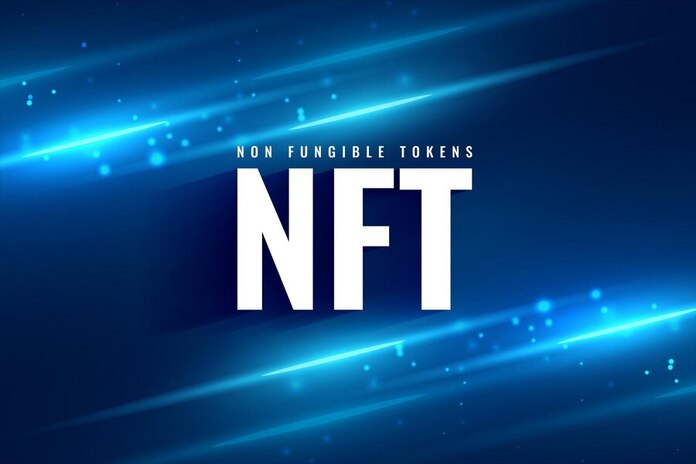Starknet Staking Launch Set for End of 2024
This post was originally published on this site

Starknet, a Layer-2 network on Ethereum, is poised to open staking on its ecosystem by the end of 2024. The announcement, made by StarkWare’s CEO Eli Ben-Sasson at the Ethereum Community Conference in Brussels, marks a significant milestone in Starknet’s decentralized journey. This article explores the details of the Starknet staking launch, its phased rollout, and the potential opportunities for users and developers.
Starknet Improvement Proposal: Eli Ben-Sasson introduced a Starknet Improvement Proposal that outlines the staking process for the Starknet ecosystem. According to the proposal, users will have the option to become stakers, with rewards proportional to the amount of STRK tokens staked. Stakers will be required to lock their tokens for a 21-day period before being able to withdraw their funds, ensuring a commitment to network security and stability.
Phased Rollout of Staking: The staking rollout will occur in several stages. Initially, stakers will need to connect to Starknet, interact with the staking contracts, and adhere to the proposed protocol rules. This first main stage is crucial for setting up the foundational aspects of staking on Starknet. StarkWare and the Starknet Foundation will closely monitor users’ staking habits to inform future updates and enhancements to the staking mechanism.
Real-Time Attestations and Sequencing: In subsequent stages, stakers will provide real-time attestations to the content of blocks, further securing the network. The final stage will see stakers performing sequencing and proving activities, fully securing the Starknet network. This phased approach ensures a thorough and secure implementation of staking, gradually increasing the responsibilities and rewards for stakers.
Building the Staking Community: Ben-Sasson emphasized the importance of this staking initiative in building a robust staking community and technology. “As Starknet continues its decentralized journey, StarkWare is excited to propose the first stage of staking,” he said. “This is an important step in building the staking community and technology, offering new opportunities for users and developers.”
Impact on the Ethereum Ecosystem: The introduction of staking on Starknet is expected to have a significant impact on the broader Ethereum ecosystem. As a Layer-2 solution, Starknet aims to enhance Ethereum’s scalability and reduce transaction costs. By enabling staking, Starknet can attract more participants, thereby increasing network security and fostering a more decentralized and resilient ecosystem.
Opportunities for Users and Developers: The Starknet staking launch presents numerous opportunities for both users and developers. Users can earn rewards by staking their STRK tokens and actively participating in network security. Developers, on the other hand, can leverage the enhanced security and scalability of Starknet to build more efficient and innovative decentralized applications.
Community Involvement and Governance: The success of the Starknet staking initiative will largely depend on community involvement and governance. The Starknet community will play a pivotal role in approving the SIP and shaping the future of staking on the network. By engaging with the community, StarkWare aims to ensure that the staking mechanism aligns with the needs and expectations of its users.
Conclusion: The Starknet staking launch set for the end of 2024 marks a crucial step in the network’s evolution. With a well-structured phased rollout, Starknet aims to build a robust staking community and enhance its security and decentralization. As the Ethereum ecosystem continues to grow, the introduction of staking on Starknet will provide valuable opportunities for users and developers, contributing to a more scalable and efficient blockchain environment.
Featured Image: Freepik



 The value of cryptocurrency stolen in hacks worldwide more than doubled in the first six months of 2024 compared to the same period last year, driven by a few large-scale attacks and increasing crypto prices, according to blockchain researchers at TRM Labs. Surge in Crypto Theft Hackers stole over $1.38 billion worth of cryptocurrency by …
The value of cryptocurrency stolen in hacks worldwide more than doubled in the first six months of 2024 compared to the same period last year, driven by a few large-scale attacks and increasing crypto prices, according to blockchain researchers at TRM Labs. Surge in Crypto Theft Hackers stole over $1.38 billion worth of cryptocurrency by …  Prices for major cryptocurrencies, as well as shares of Coinbase Global (NASDAQ:COIN) and MicroStrategy (NASDAQ:MSTR), slumped on Friday as the collapsed crypto exchange Mt. Gox began paying back creditors. Nobuaki Kobayashi, the trustee for the Mt. Gox bankruptcy estate, announced that the estate has “made repayments in Bitcoin and Bitcoin Cash to some of the …
Prices for major cryptocurrencies, as well as shares of Coinbase Global (NASDAQ:COIN) and MicroStrategy (NASDAQ:MSTR), slumped on Friday as the collapsed crypto exchange Mt. Gox began paying back creditors. Nobuaki Kobayashi, the trustee for the Mt. Gox bankruptcy estate, announced that the estate has “made repayments in Bitcoin and Bitcoin Cash to some of the …  Concerns that the Mt. Gox bankruptcy redemptions will drive down the price of Bitcoin (BTC) are largely unfounded, according to Presto Labs’ Head of Research. However, the scenario could be more bearish for Bitcoin Cash. Market Impact Analysis As Bitcoin’s price continues to dip below $60,000, the market has already seen over $200 million in …
Concerns that the Mt. Gox bankruptcy redemptions will drive down the price of Bitcoin (BTC) are largely unfounded, according to Presto Labs’ Head of Research. However, the scenario could be more bearish for Bitcoin Cash. Market Impact Analysis As Bitcoin’s price continues to dip below $60,000, the market has already seen over $200 million in …  Fears of impending selling pressure from the defunct Mt. Gox exchange and potential miner sales pushed Bitcoin (BTC) under $59,000 on Thursday, marking its lowest level since late April. The anticipation of asset distributions from Mt. Gox, set to begin in July 2024, has contributed to the market’s anxiety. Market Impact and Liquidations Mt. Gox, …
Fears of impending selling pressure from the defunct Mt. Gox exchange and potential miner sales pushed Bitcoin (BTC) under $59,000 on Thursday, marking its lowest level since late April. The anticipation of asset distributions from Mt. Gox, set to begin in July 2024, has contributed to the market’s anxiety. Market Impact and Liquidations Mt. Gox, …  Bitcoin (BTC-USD) slid to a two-month low on Thursday, extending a month-long decline as uncertainty over U.S. presidential elections and reports of bitcoin supply from the defunct Tokyo-based crypto exchange, Mt. Gox, weighed on the market. Bitcoin fell more than 2% to $57,843, its lowest since May 2, and has lost more than 6% so …
Bitcoin (BTC-USD) slid to a two-month low on Thursday, extending a month-long decline as uncertainty over U.S. presidential elections and reports of bitcoin supply from the defunct Tokyo-based crypto exchange, Mt. Gox, weighed on the market. Bitcoin fell more than 2% to $57,843, its lowest since May 2, and has lost more than 6% so …  The United States, famously described by Walt Whitman as “large” and containing “multitudes,” is a land of diverse ideals and evolving mottos. Once unified under “e pluribus unum” (“from many, one”), the country’s guiding principle is now “In God We Trust.” Yet, the American Dream remains an enduring myth, promising success through hard work, talent, …
The United States, famously described by Walt Whitman as “large” and containing “multitudes,” is a land of diverse ideals and evolving mottos. Once unified under “e pluribus unum” (“from many, one”), the country’s guiding principle is now “In God We Trust.” Yet, the American Dream remains an enduring myth, promising success through hard work, talent, …  Bitcoin price prediction remains a hot topic in the cryptocurrency world. Recently, Bitcoin’s value dipped below $61,000, causing concern among investors. Despite this downturn, some traders remain bullish, predicting that Bitcoin could reach $150,000 by the end of 2024. Current Bitcoin Price Trends Bitcoin (BTC) experienced a significant drop, falling below the $61,000 mark. This …
Bitcoin price prediction remains a hot topic in the cryptocurrency world. Recently, Bitcoin’s value dipped below $61,000, causing concern among investors. Despite this downturn, some traders remain bullish, predicting that Bitcoin could reach $150,000 by the end of 2024. Current Bitcoin Price Trends Bitcoin (BTC) experienced a significant drop, falling below the $61,000 mark. This …  Robinhood Markets Inc. (NASDAQ:HOOD) is considering offering cryptocurrency futures in both the United States and Europe. This potential expansion was first reported by Bloomberg, citing anonymous sources familiar with the matter, as the plans have not yet been made public. Expanding Crypto Offerings According to these sources, once Robinhood completes its $200 million acquisition of …
Robinhood Markets Inc. (NASDAQ:HOOD) is considering offering cryptocurrency futures in both the United States and Europe. This potential expansion was first reported by Bloomberg, citing anonymous sources familiar with the matter, as the plans have not yet been made public. Expanding Crypto Offerings According to these sources, once Robinhood completes its $200 million acquisition of …  DeFi tokens have experienced a significant plunge, dropping between 10-20% amid weak crypto price action this week. This downturn in decentralized finance (DeFi) tokens highlights the volatility and challenges within the broader cryptocurrency market. DeFi Tokens Face Steep Declines The DeFi sector, known for its decentralized financial products and services, has seen some of its …
DeFi tokens have experienced a significant plunge, dropping between 10-20% amid weak crypto price action this week. This downturn in decentralized finance (DeFi) tokens highlights the volatility and challenges within the broader cryptocurrency market. DeFi Tokens Face Steep Declines The DeFi sector, known for its decentralized financial products and services, has seen some of its …  The crypto industry is experiencing a significant surge, with analysts predicting that it will soon outperform the early growth of the internet. This article explores the factors driving the crypto industry boom and its potential to reshape the financial landscape. The Rise of the Crypto Industry According to a recent report by Architect Partners, the …
The crypto industry is experiencing a significant surge, with analysts predicting that it will soon outperform the early growth of the internet. This article explores the factors driving the crypto industry boom and its potential to reshape the financial landscape. The Rise of the Crypto Industry According to a recent report by Architect Partners, the …  The Polifi sector has taken a significant hit as the political tussle between Trump and Biden intensifies. The sector, which once held promise, has seen a massive downturn, with Boden, one of its major players, dropping 95% from its peak. This article delves into the implications of this decline and explores the broader impact on …
The Polifi sector has taken a significant hit as the political tussle between Trump and Biden intensifies. The sector, which once held promise, has seen a massive downturn, with Boden, one of its major players, dropping 95% from its peak. This article delves into the implications of this decline and explores the broader impact on …  President Joe Biden’s lackluster debate performance last week has enhanced the chances of Donald Trump, a pro-crypto candidate, making a return to the White House. Despite this political shift, the market’s attention has been captivated by other factors. Altcoins Struggle Amid Low Volatility Bitcoin (BTC-USD) and Ether (ETH-USD) have experienced low volatility, creating a challenging …
President Joe Biden’s lackluster debate performance last week has enhanced the chances of Donald Trump, a pro-crypto candidate, making a return to the White House. Despite this political shift, the market’s attention has been captivated by other factors. Altcoins Struggle Amid Low Volatility Bitcoin (BTC-USD) and Ether (ETH-USD) have experienced low volatility, creating a challenging …  Kraken, the renowned cryptocurrency exchange, is exploring the use of nuclear energy as a power source for its data centers. This move comes amidst an anticipated surge in decentralized finance and growing demand for its services. Kraken Exploring Nuclear Power Solutions Kraken’s chief technical officer, Vishnu Patankar, revealed in an exclusive interview with CoinDesk that …
Kraken, the renowned cryptocurrency exchange, is exploring the use of nuclear energy as a power source for its data centers. This move comes amidst an anticipated surge in decentralized finance and growing demand for its services. Kraken Exploring Nuclear Power Solutions Kraken’s chief technical officer, Vishnu Patankar, revealed in an exclusive interview with CoinDesk that …  Cryptocurrency exchange Bitget has announced a new social project in Vietnam aimed at educating the public on secure cryptocurrency usage and fraud prevention. The initiative will use engaging posters and banners displayed in public areas like bus stops, subways, and street billboards to provide tips on detecting and avoiding crypto scams. Raising Awareness About Crypto …
Cryptocurrency exchange Bitget has announced a new social project in Vietnam aimed at educating the public on secure cryptocurrency usage and fraud prevention. The initiative will use engaging posters and banners displayed in public areas like bus stops, subways, and street billboards to provide tips on detecting and avoiding crypto scams. Raising Awareness About Crypto …  Bitcoin miner CleanSpark (NASDAQ:CLSK) announced a major acquisition, merging with Griid Infrastructure in a $155 million deal. CleanSpark will acquire all common shares of Griid Infrastructure, significantly enhancing its operational capacity by gaining access to 20 megawatts of Griid’s available power. The acquisition is projected to increase CleanSpark’s power capacity by over 400 MW within …
Bitcoin miner CleanSpark (NASDAQ:CLSK) announced a major acquisition, merging with Griid Infrastructure in a $155 million deal. CleanSpark will acquire all common shares of Griid Infrastructure, significantly enhancing its operational capacity by gaining access to 20 megawatts of Griid’s available power. The acquisition is projected to increase CleanSpark’s power capacity by over 400 MW within …  In the ever-shifting landscape of cryptocurrencies, stability is as elusive as silence in a bustling marketplace. Values soar and plummet with a volatility that would make the most daring roller coasters seem tame. However, it appears that the digital currency market is experiencing a renaissance, with signs of recovery and growth. Bitcoin: From Slump to …
In the ever-shifting landscape of cryptocurrencies, stability is as elusive as silence in a bustling marketplace. Values soar and plummet with a volatility that would make the most daring roller coasters seem tame. However, it appears that the digital currency market is experiencing a renaissance, with signs of recovery and growth. Bitcoin: From Slump to …  MegaLabs, the leading developer behind the innovative Ethereum scaling protocol known as “MegaETH,” announced a successful $20 million seed funding round led by Dragonfly Capital. This new investment aims to advance MegaETH, a real-time blockchain designed for instantaneous transaction processing, capable of streaming 100,000 transactions per second with millisecond-level responsiveness. MegaLabs Secures Funding to Revolutionize …
MegaLabs, the leading developer behind the innovative Ethereum scaling protocol known as “MegaETH,” announced a successful $20 million seed funding round led by Dragonfly Capital. This new investment aims to advance MegaETH, a real-time blockchain designed for instantaneous transaction processing, capable of streaming 100,000 transactions per second with millisecond-level responsiveness. MegaLabs Secures Funding to Revolutionize …  Pranksy’s Optimism in the Future of NFTs Well-regarded non-fungible token (NFT) collector Pranksy has voiced optimism approximately the destiny of NFTs, countering a developing narrative in their decline. Pranksy, an early NFT investor who has built a large following and collection, recently asked his X followers about the last time they purchased an NFT. The …
Pranksy’s Optimism in the Future of NFTs Well-regarded non-fungible token (NFT) collector Pranksy has voiced optimism approximately the destiny of NFTs, countering a developing narrative in their decline. Pranksy, an early NFT investor who has built a large following and collection, recently asked his X followers about the last time they purchased an NFT. The …  Japanese Institutional Crypto Investment Trends Japan’s largest investment bank, Nomura Holdings (TYO:8604), and its crypto subsidiary, Laser Digital, released findings from a recent survey on Monday. The survey targeted over 500 investment managers in Japan, revealing that 54% plan to allocate funds to crypto assets within the next three years. Motivations and Barriers for Japanese …
Japanese Institutional Crypto Investment Trends Japan’s largest investment bank, Nomura Holdings (TYO:8604), and its crypto subsidiary, Laser Digital, released findings from a recent survey on Monday. The survey targeted over 500 investment managers in Japan, revealing that 54% plan to allocate funds to crypto assets within the next three years. Motivations and Barriers for Japanese …  Bitfarms Ltd., a Bitcoin mining company, is adopting a “poison pill” shareholder rights plan in response to an unsolicited takeover offer from larger rival Riot Platforms Inc. A poison pill strategy is designed to deter corporate takeovers by making the acquisition too costly for the acquiring company. Under the terms of Bitfarms’ plan, if an …
Bitfarms Ltd., a Bitcoin mining company, is adopting a “poison pill” shareholder rights plan in response to an unsolicited takeover offer from larger rival Riot Platforms Inc. A poison pill strategy is designed to deter corporate takeovers by making the acquisition too costly for the acquiring company. Under the terms of Bitfarms’ plan, if an …  Bitdeer, a prominent Bitcoin (BTC) miner, has announced its acquisition of Desiweminer, a designer of chips for ASIC mining machines, in a significant all-stock transaction valued at $140 million. This strategic move aims to bolster Bitdeer’s capabilities in ASIC chip design and enhance its position in the competitive cryptocurrency mining industry. According to the announcement …
Bitdeer, a prominent Bitcoin (BTC) miner, has announced its acquisition of Desiweminer, a designer of chips for ASIC mining machines, in a significant all-stock transaction valued at $140 million. This strategic move aims to bolster Bitdeer’s capabilities in ASIC chip design and enhance its position in the competitive cryptocurrency mining industry. According to the announcement …  Binance, the world’s largest cryptocurrency exchange, has resumed Mastercard payments for purchasing cryptocurrencies, marking a significant development in the crypto payment landscape. While Mastercard withdrawal services are not yet available, they are expected to be reinstated at a later date. This move comes after Mastercard suspended crypto-related services on Binance in August 2023. The decision …
Binance, the world’s largest cryptocurrency exchange, has resumed Mastercard payments for purchasing cryptocurrencies, marking a significant development in the crypto payment landscape. While Mastercard withdrawal services are not yet available, they are expected to be reinstated at a later date. This move comes after Mastercard suspended crypto-related services on Binance in August 2023. The decision …  Kerrisdale Capital Management LLC, known for its short-selling strategies, has set its sights on Riot Blockchain Inc., criticizing its business model as flawed in the challenging landscape of Bitcoin mining. According to Kerrisdale, investing in Bitcoin directly is a more viable option for cryptocurrency enthusiasts than purchasing miner stocks. The report released by Kerrisdale founder …
Kerrisdale Capital Management LLC, known for its short-selling strategies, has set its sights on Riot Blockchain Inc., criticizing its business model as flawed in the challenging landscape of Bitcoin mining. According to Kerrisdale, investing in Bitcoin directly is a more viable option for cryptocurrency enthusiasts than purchasing miner stocks. The report released by Kerrisdale founder …  Digital assets firm Galaxy Digital has granted a multimillion-dollar loan to Yat Siu, the co-founder of Animoca Brands, using a unique collateral combination: a tokenized 1708 Stradivarius violin and its corresponding non-fungible token. Valued at over $9 million, the violin boasts a storied history, including ownership by Russian Empress Catherine the Great. This deal could …
Digital assets firm Galaxy Digital has granted a multimillion-dollar loan to Yat Siu, the co-founder of Animoca Brands, using a unique collateral combination: a tokenized 1708 Stradivarius violin and its corresponding non-fungible token. Valued at over $9 million, the violin boasts a storied history, including ownership by Russian Empress Catherine the Great. This deal could …  In response to the growing demand for scalable and cost-effective Bitcoin payments, the team behind the Bitcoin layer-2 protocol Ark has established a new company called Ark Labs. This innovative firm aims to develop a faster and more efficient payment system on the Bitcoin blockchain, offering a compelling alternative to the Lightning Network. Led by …
In response to the growing demand for scalable and cost-effective Bitcoin payments, the team behind the Bitcoin layer-2 protocol Ark has established a new company called Ark Labs. This innovative firm aims to develop a faster and more efficient payment system on the Bitcoin blockchain, offering a compelling alternative to the Lightning Network. Led by …  In May, global non-fungible token (NFT) sales witnessed a notable decline, totaling $604 million, marking the lowest monthly performance since October and the first month of the year with sales below $1 billion. Ethereum, renowned as the leading blockchain for NFT sales, experienced a dip in sales, recording $164 million in May, the lowest since …
In May, global non-fungible token (NFT) sales witnessed a notable decline, totaling $604 million, marking the lowest monthly performance since October and the first month of the year with sales below $1 billion. Ethereum, renowned as the leading blockchain for NFT sales, experienced a dip in sales, recording $164 million in May, the lowest since …  Coinbase’s recent $25 million donation to political action committees (PACs) has propelled the crypto industry’s campaign fund to approximately $161 million, making it one of the most significant players in U.S. campaign finance. This substantial cash injection positions the crypto industry as a formidable force in influencing the political landscape, with the potential to allocate …
Coinbase’s recent $25 million donation to political action committees (PACs) has propelled the crypto industry’s campaign fund to approximately $161 million, making it one of the most significant players in U.S. campaign finance. This substantial cash injection positions the crypto industry as a formidable force in influencing the political landscape, with the potential to allocate …  Russian commodities firms facing challenges in executing financial transactions with Chinese counterparts are turning to stablecoins as a new method for settling deals. At least two major metals producers have begun utilizing Tether Holdings Ltd.’s stablecoin and other cryptocurrencies to settle cross-border transactions with primarily Chinese clients and suppliers. These settlements, in some cases, are …
Russian commodities firms facing challenges in executing financial transactions with Chinese counterparts are turning to stablecoins as a new method for settling deals. At least two major metals producers have begun utilizing Tether Holdings Ltd.’s stablecoin and other cryptocurrencies to settle cross-border transactions with primarily Chinese clients and suppliers. These settlements, in some cases, are … 




